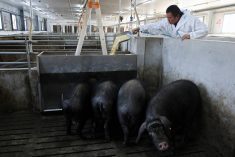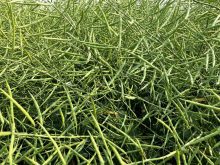Sao Paulo | Reuters — Demand for beef in China is expected to rise as the country still has relatively low per capita consumption, Gilberto Tomazoni, chief executive of JBS SA, said on Wednesday during a business conference.
He said Brazil and the U.S., where JBS has meat facilities, are well positioned to meet China’s growing demand for beef as the major food importer reopens after COVID-19 restrictions.
“It is structural the growth in demand for beef in Asia as a whole, especially in China,” the CEO said.
Read Also

U.S. grains: Soy rally continues after Trump says China to expand purchases
Chicago | Reuters – Chicago soybeans extended gains on Thursday, a day after U.S. President Donald Trump said China had…
He added that China is competitive in chicken and pork production, since these have shorter cycles, while for beef there is a need for more land and the production cycle is longer.
“Urbanization, rising income, these increase consumption,” Tomazoni told reporters. “Changes in habits after the pandemic (also) leads to an increase in beef consumption.”
On Tuesday, the CEO of poultry and pork processor BRF, Miguel Gularte, said he was optimistic about China’s meat demand returning to normalcy after the Chinese New Year celebrations.
Tomazoni cited forecasts that by 2050 the world will have to produce 50 per cent more food to meet global demand, also pointing to population growth as a factor driving consumption.
— Reporting for Reuters by Roberto Samora; writing by Ana Mano.















